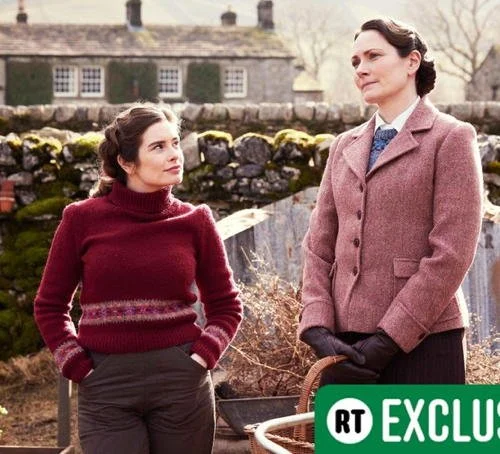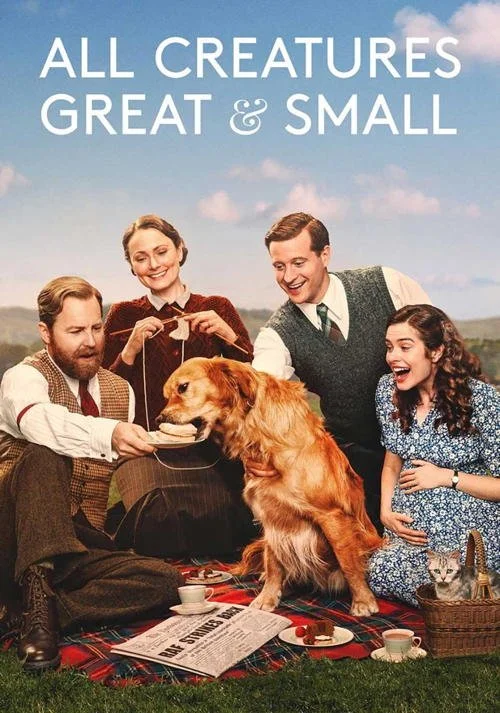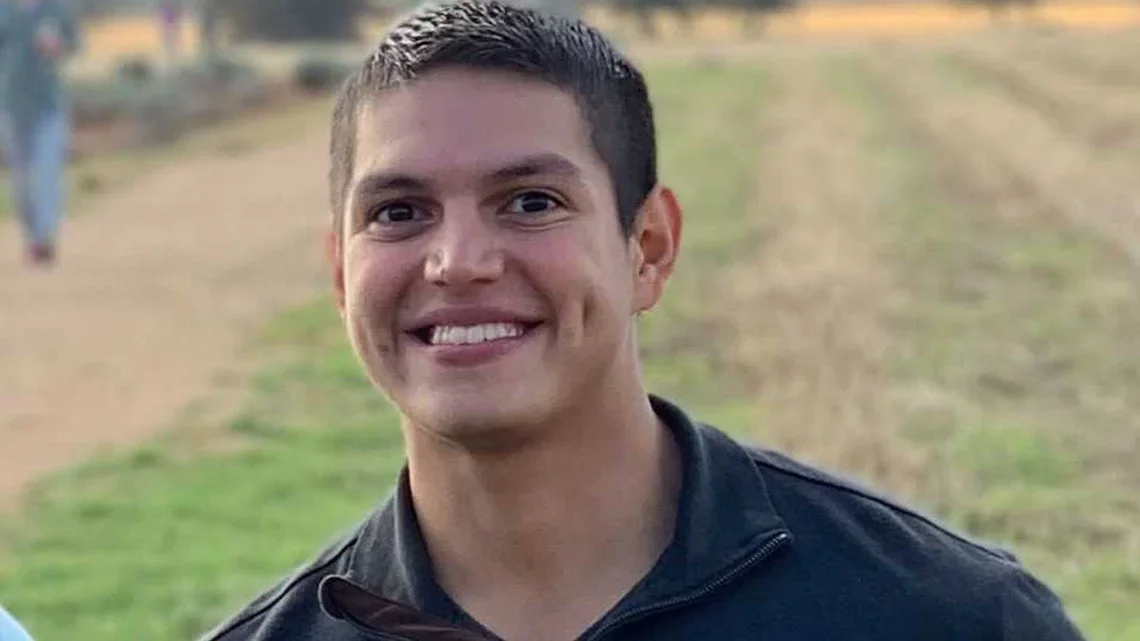All Creatures Great and Small (Updates on Seasons 4 and 5) 🥁🥁🥁🥁
/Season 5: The Remarkable Mrs. Hall
Season 5 is a hagiography to Mrs. Hall, the reinvention of the hardly mentioned 60 year old housekeeper from the many books James Herriot wrote. She is further glorified here:
At the risk of alienating friends and fans, girl power has gone too far. The books and the original 1978 series were centered on James Herriot and his practice, on the sweet, funny, and yet sometimes agonizing lives of the animals and their owners.
In season 5, the men are almost tangential. It is the women running the roost, and Mrs. Hall holds court.
Mrs. Pumphrey softens, too, but at least she still holds some of her old imperious ways. Again, it is the world as James Herriot might have wished it, where all friction is solved by the end of each 50 minute episode, a sort therapeutic approach to television to which even once hard-edged dramas like NCIS have succumbed.
There is delight, but there is also a price to pay for it. Mrs. Pumphrey gives up her estate to become a war hospital as they did in Downton Abby, but is somewhat miffed when she is ushered from the premises by an extremely territorial nurse in charge.
An escaped snake slithering the halls may or may not exist adds drama and laughter, but the easy reconciliations between nettle-edged companions – the newly arrived Tristan (Callum Woodhouse) and the usurper of his bed, Dr. Carmody ( James Anthony-Rose) – as well as the head nurse and not the quite magnanimous Mrs. Pumphrey again are too easily solved just in time for the final advert.
A highlight draws us in – yes, even Different Drummer – Carmody’s driving lessons. This intellectual who seems to have the person skills of Doc Martin does not mesh with the gear box either, and Siegfried, and even the good-natured Herriot, finally give up on him.
In secret, Mrs. Pumphrey puts Carmody behind the wheel of her impeccable Rolls Royce and tells him to put the pedal to the metal in no uncertain terms. The key is that he has to describe the scenery to Tricky Woo as he drives. Hilarity ensues. Even if their first meeting has not been too promising:
The Final Christmas episode keeps us on tenterhooks. And even though Mrs. Hall’s narrative arc is almost completely fabricated for this series, the reality of the war is not, as it seeps into what is certainly a less joyous Christmas celebration.
As in 1994’s Iron Will, which takes place during World War I. Different Drummer’s comments from that war are as apropos about this World War II as the newspaper and wireless bring daily news of early defeats and tragedies:
“And looming like a dark shadow… its headlines blaze across the daily newspaper like a black edged destruction consuming it.”
Unlike Season Four, all honey, this season introduces bees that still have their sting.
Season 4: “ The World as James Herriot Might Have Wished”
Different Drummer is managing to enjoy the 4th season of All Creatures Great and Small without too much quibbling over the audacious changes from the books written by real life veterinarian Alf Wight (James Herriot was his pen name). The key is seeing the series as the world he would have wanted to see rather than the real world, which was often sad and tragic.
One such scene occurs over the “bad’un Wesley Binks” in episode 1. First of all, Different Drummer cannot figure out why they left out the wonderfully comic scene from the book where the little imp makes James look the fool.
Wes’s greatest triumph was undoubtably the time he removed the grating from the coal cellar outside Skeldale House.”
Just as James is the watching parade, a feeling of well-being arising in him…
Looking around me I …raised a gracious hand now and then rather like a royal personage on view. Then I noticed that Helen hadn’t much room by my side, so I stepped to the left to where the grating should have been and slid gracefully down into the cellar…
But it is the ending of the little story where Wes turns around himself, working hard to earn money and be a good citizen to pay James for tending to his dog that has distemper. It is not just an omission, but a complete reversal of the ending Herriot wrote!
In the television series, the dog recovers, and the now reformed, sweet little Wes goes to work for a farmer who is as lonely as he. Happy endings all around.
Here is the way it actually ended as Herriot writes. Herriot cannot cure the dog and has to put it to sleep. After a short sob, Wesley retreats into his former self.
From then there were not more odd jobs or useful activities. He never played any more tricks on me but in other ways he progressed into more serious misdemeanours. He set barns on fire, was up before the magistrate for theft, and by the time he was thirteen, he was stealing cars.
A policemen remarked
“He was a wrong’ un or ever I saw one. You know, I don’t think he ever cared a damn for anybody or any living thing in his life.
“I know how you feel, sergeant,” I replied. “But you’re not entirely right. There was one living thing…”
Of course, I choked up on reading that sad tale, but I have to admit I also choked up on the sanitized happy ending artificially grafted into the series.
I guess the UK and the PBS folks over here think we are children and cannot bare harsh realities. Saccharine ending sell so much better, don’t they?
***
So, I will enjoy season 4 as though it is a new entity, trying to erase the wonderful tales I have read over and over again. I will not be offended about melodrama that is completely fabricated, such as the brucellosis scare to a newly pregnant Helen.
Or the omission of the best part of the final conversation between James and Siegfried before James goes off the pilot training. It has to do with a supposed bookkeeping error where Siegfried writes a £50 check to James (£50 in 1940 is equivalent in purchasing power to about £3,507.76 or $2, 780 today), saying that is what he owes his new partner. Only in later years does James realize that was a made-up story to disguise the stoic Siegfried’s loving act of charity.
Yes, I loved the final Christmas Special, “ A Wing and a Prayer,” where the birth of James and Helen’s first child echoes the birth of Christ. And it is nothing if not witty, the wing referring to the grounded mascot for his RAF division that he must fix to raise morale for the beleaguered fliers. The whole new series is beloved by the British public and most of the Americans just now getting it here in the states, but I must acknowledge being a part of the few curmudgeons who lament the grafted on happy endings, which differ considerably from the books as Alf Wight (James Herriot ) wrote them.
Here is two “minority reports” from audience reviews:
Audience Review: Too Much Soap Opera
“First of all, James takes off during wartime after being refused leave while his child is being born. This is a court martial offense and he could be prosecuted. That whole thing is conveniently taken care of. His commanding officer is right. Lots of people would like to be home. Sometimes his impulsiveness is too much. I don't enjoy his character that much. It's a tear jerker but I couldn't get over how contrived the whole thing was. I hope that if the series goes on, the writers will get back to some edginess. Helen needs to be on the screen way less. I know some will say it's a feel-good show, but wartime was real and he signed up for it.
In the book, James does sneak away to see Helen, but he is never caught.
Sappy sells, doesn’t it? (DD)
Enjoy the honeyed happy world on your screen but read the books if you want the real nectar.
Original Review: All Creatures Great and Small
Year Released: 2020-2025
Director: Brian Percival
Starring: Nicholas Ralph, Samuel West, Anna Madeley, Callum Woodhouse, Rachel Shenton
(TV-PG, (7 episodes, approx.50 min. each)
Genre: Comedy, Drama
“The animals are the easy part. It’s the people who cause all the bother.” –Siegfried Farnon
You can’t help but fall in love with this 2020 British adaptation of James Herriot’s first unsteady steps as a young veterinarian in the Yorkshire Dales (hills for us Yanks). It’s Midsomer without the murders, plus an enchanting assortment of lovable and eccentric characters, humans and animals alike.
It's 1937 and Glasgow is in the grip of depression. James Herriot, fresh out of veterinary college, moves to the magnificent Yorkshire Dales for work, and soon discovers that treating the animals is as much about treating their owners.
At Skeldale House, the veterinarian gets to know his new family; his erratic boss Siegfried Farnon, his wayward brother Tristan and the shrewd housekeeper Mrs. Hall. James is drawn to local farmer’s daughter Helen Alderson.
The first episode gives us a taste of the Depression reflected in Glasgow, with James (Nicolas Ralph) running down the street with his loyal Irish setter at his side, dodging grubby dockworkers crowding the street. Who knew that jogging was already trending in 1937 Glasgow, one of several anachronisms in this series. At any rate, James’ mother despairs that the newly qualified veterinarian will never get a job offer and wants him to get work at the docks instead. Much is made of the arrival of a letter offering an interview in Yorkshire.
How different from the compelling opening James Herriot (pseudonym for real life Yorkshire Vet, Alf Wight) penned in 1970, a sort of in medias res (“in the middle of things”) event typical of classic epics.
They didn’t say anything about this in the books, I thought, as the snow blew in through the gaping doorway and settled on my naked back.
I lay face down on the cobbled floor in a pool of nameless muck, my arm deep inside the straining cow, my feet scrabbling for a toe-hold between the stones. I was stripped to the waist and the snow mingled with the dirt and the dried blood on my body. I could see nothing outside the circle of flickering light thrown by the smoky oil lamp which the farmer held over me.
That excerpt is all you need to understand why these first books by an unknown author captured not just Britain (If Only They Could Talk (1970) and It Shouldn’t Happen to a Vet (1972), but America shortly after in 1975 when they were released together under the new title All Creatures Great and Small.
Of course, “nameless muck, dirt and dried blood” is not what the public wanted in 2020, especially the Brits enduring endless lockdowns amid the ravaging corona virus enveloping their world.
So the new series does not vie with the BBC early adaptation of Herriot’s books, All Creatures Great and Small (1978-1990), which followed Herriot’s writing pretty closely.
As such, in those earlier episodes Herriot recalled the mostly true events from his perspective, and the stories were not just comic, as the new series tends to prefer, but many were poignant with difficult glimpses into the poverty and hard life of those Yorkshire farmers.
All Creatures Great and Small 2020 puts a nostalgic spin on the events of Herriot’s books and adds some strong female characters.
Helen (Rachel Shenton) [based on his real wife, Joan, who was actually a secretary and not a farmers daughter] is prominent in the books and series, but not her younger sister, nor Mrs. Hall (Anna Madeley), or other females. Perhaps adding more females broadens the audience appeal, but to Different Drummer Mrs. Hall’s dominance seems a step too far and appears to demean the three males living in Skeldale house. In the books, Mrs. Hall did not live at Skeldale House and is merely portrayed as “a gracious 60 year old house keeper.”
In the new series, she is the one who keeps everyone is line, including her boss, Siegfried, as well as navigating the sometimes unsteady waters of the three bachelors, Siegfried (Samuel West) James (Nicolas Ralph) , and Tristan (Callum Woodhouse), Siegfried’s wayward and fun loving younger brother.
Different Drummer is torn. Yes, the new All Creatures Great and Small fulfills us, but dare I say it does so with Velveeta instead of sharp cheddar? Melodramatic events are created, as though the viewing public is not willing or able to put up with nuance.
A non-existent feud and rivalry between James and Tristan is inserted into the narrative; the awkward disastrous dates between James and Helen are a no show, but a purely for television invention of each of them taking al fresco baths in the local waterfall appears on screen. The writers can’t decide if Siegfried, a contented bachelor in the books, is a ladies’ man, waltzing all the classy ladies at Mrs. Pumphrey’s grand gala (episode 2) or a tongue tied suitor (episode 7). Not to mention the invented cliff hanger wedding in the Christmas episode.
Or as one of the few nay sayers, James Winemiller, observes,
The Helen in the new TV series is running the farm, and dragging around a huge bull. Many of the other "farmers" in the 1930s utopian Yorkshire are females including a strong pipe smoking wheeler, dealer that challenges everyone around her. Siegfried and Tristan are sneaky, dishonorable, adolescent acting men who are kept in line by Mrs. Hall. Mrs. Hall is seen at surgeries, in pubs, sitting at tables eating with her employer, dispensing sage advice in all settings. She is not 60 years old; in the new series she appears to be in her 30s and of course there is a hint of the possibility that she and Siegfried may blossom into some kind of relationship. I just wish a period story would stay true to the period as described by the author. I am tired of having history purposely scrubbed to fit contemporary narratives.
Nevertheless, if Different Drummer had not read the books and reread them so recently, all these nit-picking observations might never have emerged.
Is Great Britain going Hollywood, changing real stories to fit their storybook templates? Recent fiddling with Sherlock Holmes and Agatha Christie seem to say so. One acute observer lists the tropes that magically appear in the new series.
All in all, however, even if this is a somewhat saccharine, slickly marketed redo of those well-loved writings, All Creatures Great and Small has enough insight and goodness in it that it still stands tall and strong after all the tinkering.
See it for yourself and let me know what you think.
–Kathy Borich
🥁🥁🥁🥁
Trailer
Film-Loving Foodie
Have some fun and recreate the lavish party to which the wealthy widow Mrs. Pumphrey – or rather her completely spoiled Pekinese Tricki Woo – invites young Dr. Herriot.
Many are invited to the gala, but only James receives an invitation from Tricki Woo himself. Siegfried Farnon, who owns the veterinary practice, tells James he must not turn it down.
There will be “mountains of exotic food, rivers of champagne. Don’t miss it, whatever you do. And remember, for Pete’s sake don’t write to Mrs. Pumphrey. Address your letter to Tricki himself or you’re sunk.”
The gathering certainly lives up to Siegfried’s description. Mrs. Pumphrey herself instructs François, one of many white-jacketed waiters, to make sure James’ glass of champagne never goes dry. So in between the smoked salmon and the black heaps of caviar, James imbibes magnums of champagne in a glass that “looked something like a soup plate with a stem.”
Of course, all that champagne does make the evening quite a delight, as James ponders when his light head hits the pillow. But those sweet remembrances fade with a phone call ushering him out of his warm bed to deliver a litter of pigs a Beck Cottage, which lay “in a hollow (that) was a sea of mud in the winter.”
But let’s forget about that mud, the ice-cold water to wash his hands, and the rough sack he has to use as a towel, “its edges stiff with old manure.”
Instead, we’ll feast on some delicious Smoked Salmon Cream Cheese Tea Sandwiches and perhaps wash them down with a glass – not a magnum – of champagne.
Enjoy.
Smoked Salmon Cream Cheese Tea Sandwiches
Ingredients
· 1 long French baguette
· 8 oz smoked salmon
· 1 (7 oz) Arla cream cheese
· 2 tablespoons sour cream
· 2 tablespoons fresh dill – finely chopped
· parsley or dill for garnish
Directions
1. Slice bread into 1/3” thick slices.
2. In a small bowl, combine the spread ingredients: 7 oz cream cheese, 2 tbsp sour cream and 2 tbsp freshly chopped dill. Mash it all together with a fork.
3. Spread about 1 tsp of the cream cheese mix over each bread slice. Top with a piece of salmon and garnish with fresh parsley.
4. If stacking, put a plastic wrap between the layers so that the bread of top layer doesn’t get soggy. Enjoy right away or refrigerate until ready to serve.






















